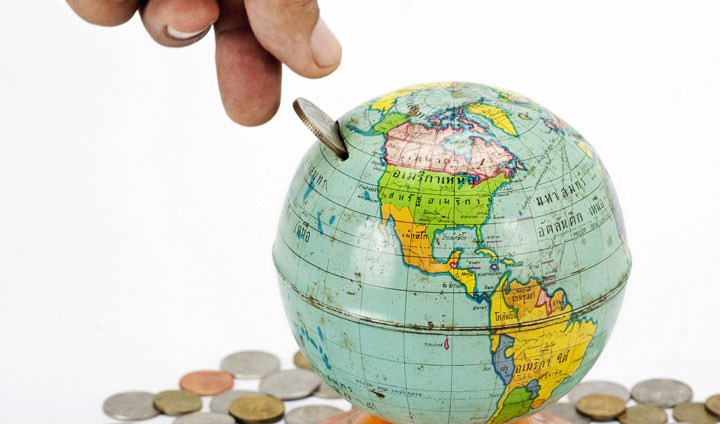Planetary economics

The development of our contemporary economies underscores the prosperity, the standard of living and the technological advances that we expect today. But the medal has a flip side. We are depleting the earth's natural resources, exceeding several of the planetary boundaries and consuming too much for the economy to be sustainable in the long term.
While there are several examples of how we overload ecosystems - one is commercialised[CH1] high-sea fishing – we also need to ensure that all people can enjoy a reasonable economic standard, a good life and a minimum level of well-being and welfare.
Striking this balance and avoiding differences that are too big between different groups in society and between countries, is a major challenge and the theme for research on sustainable economies and business at Örebro University. This can be summarised under one umbrella: Planetary economics.
Several questions need to be studied to understand planetary economics:
- How are finance and business related to well-being and health?
- How do you define a minimum standard of living for all?
- Is it the same level for everyone?
- Who defines it?
- What does it mean to have a good life?
- How are economics and ecosystems connected?
- How do we know if an economy depletes one or more ecosystems?
If so, who is responsible for it? Businesses? Politicians? Or us consumers who demand and buy things? All of us together?
How we can understand and model the principles and mechanisms behind the distribution of responsibilities, risks, benefits, gains and roles in a sustainable economic system is one of the major challenges. Another challenge is how to understand an economy that is not based on an assumption of perpetual growth. Can we have an economy that grows without depleting our ecosystems? Or do we have to have an economy that flattens out and remains on one level? What then is this level? And who determines it?
These are some of the questions that researchers affiliated with Örebro University's Platform for a Sustainable Future are studying. But there is much more. More information can be found here.
Some examples of research teams included in the theme are: Gender, Work and Organisations, Value Chain, Circular Economy, Critical Studies of Men and Masculinities, Business Ethics, Machine Perception and Interaction, Interorg and Mobile Robotics and Olfaction Lab.
Within PSF@ORU, researchers conduct several projects within the theme. For example, a project on the sharing economy studies how new ways of exchanging resources affect our view of resource utilisation and exchanges. In a project on consumer behaviour, researchers study challenges and opportunities for circular packaging in the food sector. In the sustainable transports field, a project on innovation ecosystems studies the road transport sector's adaptation phase to decarbonise transports by electrification, and in a circular economy project, researchers collaborate interdisciplinarily to understand the challenges of creating circular flows with building and waste masses in the construction industry.
